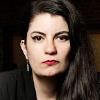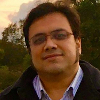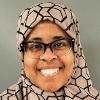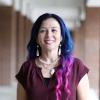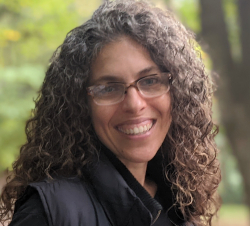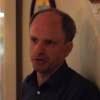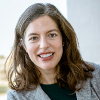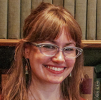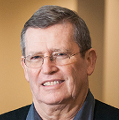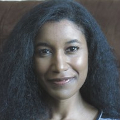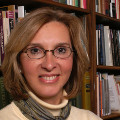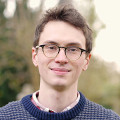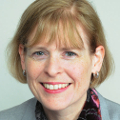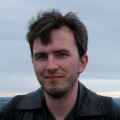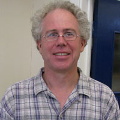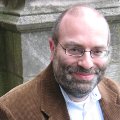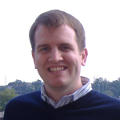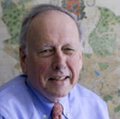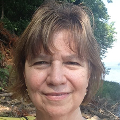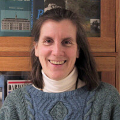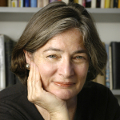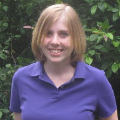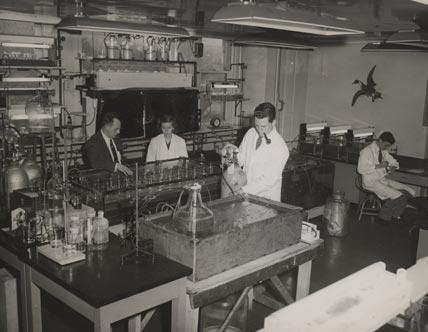Our supporters have made the Consortium more effective. Working together, we have enrolled more Consortium member institutions. We have provided fellowships for researchers, organized working groups for scholars from around the globe and produced public events shedding historical perspective on contemporary concerns.
Every contribution, at any level, helps to promote excellence in scholarship and to inform and elevate public discussion of historical and contemporary issues in science, technology and medicine. Your individual support also encourages others to help. If you have given in the past, please renew your support. If you have not given before, please make a contribution.
Many thanks for making our work possible.
![]()
Babak Ashrafi
Executive Director
Credit Card or PayPal: No registration or login required for credit cards.
Contribute by Check: Please include your name, address and email, and send your check to
Consortium for History of Science, Technology and Medicine
c/o Babak Ashrafi
315 Chestnut St.
Philadelphia, PA 19106
The Consortium for History of Science, Technology and Medicine is a 501(c)(3) nonprofit organization registered with the Commonwealth of Pennsylvania’s Bureau of Charitable Organizations as the "Philadelphia Area Center for History of Science" and also operating under the name "Consortium for History of Science, Technology and Medicine."
Why support the Consortium
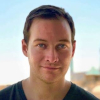
Benjamin Breen
University of California, Santa Cruz
June, 2025
The Consortium is one of the most effective institutions I know of for supporting scholarship in the history of science, medicine, and technology. It offers more than just funding or access to resources—though both are crucial. What sets it apart is the way it creates a sustained, structured environment for intellectual exchange across career stages. The working groups in particular provide a rare space where scholars can engage with each other’s work in progress in a serious, generous way. It’s hard to think of another organization that has done more to foster real community and intellectual growth in the field
Hanin Hannouch
Curator of Photography, Film, and Audio
Weltmuseum Wien, Vienna, AustriaMay, 2025
The Consortium has proven to be instrumental in helping us turn a loose field of inquiry into a full-fledged academic investigation by enabling the following: pushing us to engage consistently with our research questions, enough to be able to host monthly sessions; helping us regularly connect to scholars from all over the world through online meetings; making it possible for us to reach out to our community through regular newsletters — all while giving us the freedom to structure how we wish to go about these endeavors. The Consortium is a welcoming and kind space where we can connect with people who share our scholarly enthusiasm and collegial values.
Mary E. Fissell
Inaugural J. Mario Molina Professor in the History of Medicine, The Johns Hopkins University
President, American Association for the History of MedicineNovember, 2024
The Consortium is a uniquely valuable institution for the histories of science, medicine, and technology. It creates a forum where scholars at all levels, from all kinds of institutions, meet and rigorously yet collegially discuss an astonishingly wide array of topics. It connects people who may be the only scholar of HSMT in their particular institution with a lifeline in the form of working groups dedicated to a particular area of scholarship, about the best use of Zoom I can imagine! The support offered to dissertation students and postdocs has been crucial to the careers of many a younger scholar. I'm so glad the Consortium had the vision to imagine this new kind of meeting place for our field.
Projit Bihari Mukharji
Head of Department, Professor of History, Ashoka University
Co-editor of Osiris, Associate Editor of Asian Medicine, Book Reviews Editor of IsisJune, 2024
The Consortium is an enormous boon for those of us working as historians of science outside the small number of elite North American programs. Those of us based in the Majority World have to not only deal with limited access to material resources but usually find ourselves working in institutions where there are no other historians of science. The Consortium’s fellowships, e-resources, and working groups together give us ways of accessing valuable library resources as well as establishing community and staying abreast of the latest work in our fields.
Ayah Nuriddin
Cotsen Postdoctoral Fellow, Princeton Society of Fellows
Lecturer, Council of the Humanities and African American Studies
Princeton UniversityNovember, 2023
My time as a Dissertation Fellow was incredible! I was able to conduct archival research that proved to be central to my dissertation and forthcoming manuscript. The Consortium continues to be an important source of intellectual community. It was invaluable to do research within a community of scholars doing incredible work, and to talk through the research process with them as we developed our projects. The working groups continue to be vital to my intellectual development, and have allowed me to connect with and learn from scholars all over the world especially since the Covid-19 pandemic. The Consortium has enriched my work as a scholar and continues to be an essential source of intellectual community.
Yovanna Pineda
Associate Professor of Latin American History
University of Central Florida, OrlandoNovember, 2023
The Consortium has been a blessing for our research team, allowing us to meet new scholars, share ideas, and present our work. Each month our group meets to discuss our research topics on the aesthetics of technology in Latin America. From this scholarly engagement, our project has blossomed and expanded to include three conference presentations and we plan to meet at an in-person workshop, write an edited volume, and apply for research grants to continue this work.
Jeff Pooley
Professor of Media and Communication
Muhlenberg CollegeJune, 2023
Without the Consortium, there would be no community of historians of media studies. Our Working Group has hosted 30 sessions over the last three years, bringing together scholars from around the world for rich conversations on works-in-progress. We have, thanks to the Consortium, brought a field into existence, and broken down national and linguistic siloes in the process. The Consortium, for me and my peers, is an indispensable agora, a space of scholarly exchange that spans the globe.
Linda Ehrsam Voigts
Curators' Professor of English Emerita
University of Missouri-Kansas CityJune, 2023
The Consortium performs an invaluable service to scholarship in the history of medicine. One of its contributions that is quite valuable to me is that it serves as the access point for scholarly information on the history of medicine provided by the Wellcome Collection in London and McGill University in Montreal. They organize a Consortium working group on the history of medicine for an international audience. I myself have profited very much from participating, and had the recent privilege of giving one, in this case, "The Sweating Sickness (Sudor Anglicus): Mortality and Possibility of Recovery: The 'English Cure' ". The electronic discussion that followed the presentation involved scholars in Europe and the United States. It was most fruitful for me and resulted in subsequent email correspondence on the subject with those participants in Europe and the U.S.
Fa-ti Fan
Binghamton University
President, History of Science SocietyDecember, 2022
For the history of science community, the Consortium is like a neighborhood café where we gather around tables to read, think, chat, and share ideas. Over the years, I have hopped from table to table, partaken in conversations, greeted old friends, met new visitors — and have come away feeling excited about what I learned.
Michelle Frank
M.A. Student, Biography and Memoir Program
CUNY Graduate CenterNovember, 2022
What an incredible opportunity it has been to learn, to listen, and to expand my thinking at the Consortium! The Research Fellowship deepened my scholarship and opened doors; it gave me unparalleled access to archives, and it led to invitations to share my work with a growing international audience. The Consortium’s network makes it easy to connect with leading physicists, historians, and philosophers of science who are champions for women within the field. Since my fellowship, I’ve continued to publish and present at national and international conferences spanning the sciences and humanities. The breadth and depth of Consortium support for historians of science is extraordinary. It is a true privilege to be part of this community.
Rosanna Dent
Assistant Professor, Federated History Department
New Jersey Institute of Technology-Rutgers NewarkDecember, 2021
The Consortium fosters connections between scholars that are transformational. In person, hybrid, and online, working groups and fellowships make possible discussion across time zones, languages, career stages, and subdisciplines. From early in my graduate career, the working groups have provided a space to meet and learn with scholars around the world. As a fellow-in-residence, the Consortium community sustained me as I completed my doctoral research. Since becoming a faculty member, Consortium activities have been an intellectual sanctuary to maintain personal and intellectual engagement with the field.
Image
Dominik Wujastyk
Professor and Singhmar Chair of Classical Indian Society and Polity
Department of History and Classics, University of AlbertaDecember, 2021
The Consortium enables my collaborators and me to bring together an international audience of over seventy scholars who share an interest in the history of science in early India. This is a specialist area that would be almost impossible to bring together in any other way. While we have all got more used to video conferencing and the internationalism it opens up, the Consortium adds robust technical support, removing a whole layer of difficulty. But most importantly, the Consortium adds the imprimatur of a serious history of science organization with an infrastructure of institutional, library, and grant-awarding support.
John Tresch
Warburg Institute, University of LondonDecember, 2020
The Consortium is an incredible asset for scholars working in history of science, technology and medicine. There's nothing like it anywhere. Over many years, I've learned firsthand and from the experiences of dozens of fellow scholars – professors, PhD students, post-docs – how much it does to foster individual projects, cross-disciplinary discussions, and new intellectual developments. The coronavirus lockdown showed the Consortium's foresight in setting up its Working Groups for remote participation; thanks to the Consortium, it has never been easier to keep in conversation with colleagues worldwide about up-and-coming ideas. It's a dynamic organization with the ability to create new groups and topical presentations to adapt to changing circumstances and emerging themes. May it continue to thrive and grow.
Katherine Reinhart
2019-20 NEH Postdoctoral FellowDecember, 2020
I knew my time as a postdoctoral fellow at the Consortium would be fruitful for my research – the collections of member institutions are truly world-class – but I did not anticipate the many other benefits from my time there. While at the Consortium, I had the opportunity to learn about fascinating new research conducted by other fellows across the field as well as engage with specialists in my area through the Early Modern Science working group. I made friendships and new colleagues; another fellow and I collaborated on several conference panels and ongoing projects. Finally, the Consortium encourages wide-ranging and innovative research in the history of science, technology, and medicine. As a scholar working at the intersection of the history of art and science, I found a welcoming community eager to foster interdisciplinary research. Even better, these benefits did not end with my time at the Consortium, and I have enjoyed continuing to participate in this rich intellectual dialogue from afar. I was fortunate to be a part of it, and I look forward to engaging with this scholarly community in years to come!
Michelle Smiley
Ph.D. Candidate, Department of History of Art, Bryn Mawr
Wyeth Fellow at the Center for Advanced Study in the Visual Arts
2016 to 2017 Dissertation FellowDecember, 2019
As a dissertation fellow, and later a fellow-in-residence, at the Consortium for the History of Science, Technology, and Medicine, the opportunities to engage in substantive, intellectual discussions with both early career and established scholars blew me away. As a graduate student from an art history department, my time as a fellow was a rare opportunity to make connections from outside my field to create a fuller and more complex context for my work on the history of photography. Not only did the Consortium make these opportunities accessible, with a diverse range of working groups available to scholars from around the globe through digital platforms, they also fostered a culture of collegiality and community sorely needed in a profession that often sends scholars all over the world. The Consortium’s unwavering encouragement and support for each fellow to conduct primary research only further sustains and elevates the level of scholarship from its members. During my time in residence, I had easy access to my primary archives at the American Philosophical Society just across the street. As a result, my time as a fellow at the Consortium forever changed my ability to conduct truly interdisciplinary research across the histories of science, art, and technology.
Frederick Davis
Professor and Head
R. Mark Lubbers Chair in the History of Science
Department of History, Purdue University
Co-convenor of the Consortium Working Group on History of Earth and Environmental SciencesDecember, 2019
Over the past decade, the Consortium has emerged as one of the leading international centers for the history of science, technology, and medicine. Although I was aware of the wonderful fellowships at the Consortium, I learned more about the opportunity when one of my doctoral students, Abraham Gibson, completed a postdoctoral fellowship. The resources of the Consortium were particularly valuable to him as he completed revisions on his dissertation and submitted the manuscript for review at a leading press. The monthly working groups, in particular, bring together an international group of scholars from graduate students to senior faculty who share a common research interest. Since 2016, I have been a co-convener of the Earth and Environmental Sciences Working Group, along with Jeremy Vetter from the University of Arizona and Eve Buckley form the University of Delaware. Scholars in the Philadelphia Area meet at the Consortium and they are connected via online video conference to scholars around the United and States and the world. This allowed me to continue as convener while I was a Fulbright Senior Scholar at the Chinese University of Hong Kong in 2016-17. In 2018, we broadened our group to include a remote table with Mark Hersey and Alexandra Hui from Mississippi State University, along with their colleagues and students. As a beneficiary of the remarkable international programs at the Consortium for the History of Science, Technology, and Medicine, I heartily support the program. The Consortium continues to provide unique opportunities for scholarly engagement at all levels in the field(s) of the history of science, technology, and medicine.
Image
Kathryn M Olesko
Associate Professor
Edmund A. Walsh School of Foreign Service
Georgetown UniversityJune, 2019
It has been a pleasure to participate in the Working Group seminars of the Consortium where I have met so many new scholars whose paths I otherwise would not have crossed. These seminars are a perfect place to discuss the latest developments in the field by discussing works-in-progress and recently published articles. Younger scholars have told me that they have benefitted from receiving feedback from a variety of perspectives. Everyone has enjoyed the camaraderie of the online meetings. An added benefit: you can join the meeting without travelling, thereby limiting your carbon imprint to the electricity you use to keep your computer running. I recommend these seminars to anyone interested in joining a conversation on the latest scholarship in the history of science.
Image
Daniel Vandersommers
Assistant Teaching Professor of History
Indiana Academy for Science, Mathematics, and Humanities
Former NEH Postdoctoral FellowJune, 2019
My time as an NEH Postdoctoral Fellow at the Consortium was priceless. It was invaluable to my research, my book, and my career. Most important, though, it was priceless to my development as a scholar and person. The intellectual community that the Consortium creates is diverse, cutting-edge, transnational, and, most important, warm, genuine, and productive. The Consortium is a one-of-a-kind place that brings together both people and ideas.
John Krige
Kranzberg Professor
School of History and Sociology
Georgia Institute of Technology
President, Society for the History of TechnologyNovember, 2017
The Consortium is an extraordinary resource linking scholars all over the world who are engaged in the history of science, technology and medicine. This year SHOT celebrated 25 years of international relationships that take concrete form, for example, in our International Scholars Program and in holding our annual meeting every three years outside the United States (in Singapore in 2016, in Milan in 2019). The construction of this global community is both a response to the world we live in and to the ambitions that we have as a society — ambitions that are catalyzed by the online working groups arranged by the Consortium, by the fellowships it offers and by the Search Hub to a wonderful set of archival collections that it makes available online. It is a precious asset.
Carolyn Roberts
Department of History
Department of African American Studies
School of Medicine
Yale University
Former Dissertation FellowNovember, 2017
My research and writing on the history of medicine in the Atlantic slave trade found a vibrant home during my year at the Consortium. How thrilled I was to be in an intellectual community that was thinking through histories of science and medicine in bold, innovative ways! My work grew as a result, and I was able to make significant progress toward completing the dissertation. Indeed, my time at the Consortium was transformative. I felt as if I had discovered a new branch of my intellectual family, and those networks remain deeply significant. I am a better scholar as a result, and that is simply invaluable.
Vassiliki Betty Smocovitis
Professor, History of Science Departments of Biology and History
University of FloridaDecember, 2015
I am a senior historian of science at a large comprehensive American land-grant public university, yet I have few opportunities for substantive intellectual discussions in my primary field. Indeed, since 2008 when our small, but active graduate program was cut in the kind of restructuring that has been too common in colleges and universities, I have been largely isolated from basic activities such as working with colleagues at designing new courses, hosting seminar speakers or having conferences, and most importantly, having the kinds of active learning experiences one has in a graduate-oriented research and teaching setting. The Consortium's community has helped fill that void by enabling me to interact with both junior and senior scholars, all over the world, as both a participant as well as convener in their marvelous working groups. I have been able to not only read some excellent new literature that I didn’t know existed, but to be able to learn from the many younger people who are shaping the field, and will continue to shape the field, after I am long gone.
James Poskett
Darwin College
University of Cambridge
Former Research FellowDecember, 2015
Writing a transatlantic history of science simply would not have been possible without the support of the Consortium. My research into the history of connections between British, French and American science in the nineteenth century was going well. But based in Britain, I only had one side of the story. To complete my history, I needed to search in the rich collections of Philadelphia: the American Philosophical Society, the Academy of Natural Sciences, and the Library Company. My time as a Research Fellow not only had a profound effect on my research, resulting in an article in a major academic journal, it also changed the course of my career. At the Consortium I took part in a regular reading group and even gave a public lecture as part of the Consortium’s annual programme. Those kinds of connections (and friends) are the basis of all good scholarship. Writing transatlantic history means engaging with collections and scholars on both sides of the pond. The Consortium understands and cultivates that like no one else.
Angela N.H. Creager
Philip and Beulah Rollins Professor of History
Princeton University
President, History of Science SocietyNovember, 2014
No organization is doing a better job than the Center of connecting historians of science, technology and medicine to each other, to libraries and archives, and to the human and financial resources that make the field so vibrant right now.
Joseph D. Martin
Lyman Briggs College
Michigan State University
Former Dissertation Writing FellowNovember, 2014
The scaffolding that the Center builds around the humanistic studies of the sciences engenders a collaborative spirit that promotes open, interdisciplinary discourse. Moreover, it eases the barriers that often keep people at different institutions apart. My time at the Center has conditioned my thinking about scholarly collaboration. Since my fellowship, I have frequently drawn on my experience in Philadelphia to build connections between people who might not otherwise have seen their work as related. I have directed my colleagues to archival collections housed at consortium institutions, and recommended work by scholars whose papers I helped workshop. In this way, I see how the Center has a national impact. The researchers I met who passed through Philadelphia on short term research fellowships were studying a wide range of topics from an equally broad set of perspectives, but each of them was encouraged to engage with the ecumenical intellectual ecology the Center supports.
Richard Staley
Department of History and Philosophy of Science
University of CambridgeDecember, 2013
Somehow, the Philadelphia Area Center for History of Science has thoroughly changed the meaning of “Area,” while also showing new ways to realise fellowship and community in scholarship. On several occasions getting their monthly list of events while in Madison or Cambridge has led me to rue the fact that I couldn’t travel, but also had me looking up the work of people I didn’t yet know because I learned they were giving a paper in a town I may never visit. A little more directly, sitting in on a few workshop discussions via Skype has engaged me in conversations with a density of interchange I rarely find even in my home departments, because it's not all that often that historians of my stripe get the chance to gather in crowds. And then there was the visceral pleasure of actually attending a re-founded Joint Atlantic Seminar in Philadelphia last summer, which gave a strong understanding of new currents of scholarship in the history of the physical sciences. That’s some Area, and an impressive Center! Thank you for helping us realise new ways to meet and get to work.
Michael Gordin
Rosengarten Professor of Modern and Contemporary History
Princeton UniversityDecember 2013
I have been involved with the Center since its foundation, and I obviously had high hopes for it at the start. Nothing, however, has prepared me for the astonishing and rapid success of this organization as a facilitator of research, teaching, outreach, and scholarship in the history of science, technology, and medicine. The Center is unique both online and in person, allowing scholars from around the country -- even around the globe -- to participate in the rich scholarly resources of Philadelphia and the enormous intellectual talent that it concentrates and brings into focus.
Kurt MacMillan
Women's and Gender Studies Program
Northern Arizona University
Former Dissertation Writing FellowDecember 2013
The Dissertation Writing Fellowship that I received from the Center in 2011-2012 was critical to the completion of my dissertation and my professional development as a historian of science by generously providing me with a wealth of resources, colleagues, and intellectual space to write. The collegiality, efficiency, and depth of knowledge of the Center's community created a rich learning environment for junior scholars, particularly those like myself who are working in emerging fields.
Loren Graham
Professor of the History of Science, Emeritus
Massachusetts Institute of Technology and
Harvard UniversityNovember, 2012
This Center, in my opinion, is currently the most vigorous focus for the history of science in the United States. We are fortunate in having many excellent university programs across the country in history of science but most of them understandably concentrate on their own institutions. The Philadelphia center is distinguished by its outreach, which now extends along the entire Eastern seaboard and may shortly become a truly national center. It has found a unique function as a coordinating leader and, if the Center can continue to gain financial support, its future is very bright indeed.
M. Susan Lindee
Professor of the History and Sociology of Science
Associate Dean for the Social Sciences, School of Arts and Sciences
University of PennsylvaniaNovember 2012
The Center has fulfilled our highest hopes for what it could accomplish for history of science, technology and medicine not only in Philadelphia but in the world. It has become an intellectual resource for visitors who come to work in archives and connect with the region's thriving scholarly community. It has taken the lead in organizing international meetings and developing public events. It is a treasured resource for scholars everywhere and I support it with great enthusiasm.
Joanna Radin
Assistant Professor in the History of Medicine and of History
Yale University
Former Dissertation Writing FellowNovember 2012
When I became involved with the Center, I understood myself to be a member of a broad and very vibrant scholarly community. The fellowship provided me with invaluable experiences during a formative period. The opportunity to focus on my writing while engaging with many different individuals and institutions allowed me to take my work in new directions. The Center provides unique resources for stimulating the growth of history of science as an exciting field of inquiry and of action.
Lynn K. Nyhart
Professor
University of Wisconsin-Madison
President, History of Science SocietyNovember 2011
In its short history, the Center has become far more than a clearing-house and coordinator of information about Philadelphia-area history of science: it is rapidly becoming an autonomous hub for the regional, and even national, scholarly community in history of science, medicine, and technology. Its combination of information-tracking, public and scholarly events, working groups, and fellowships offers other localities across the nation a model of how to unite diverse institutions and disciplinary communities into one larger intellectual community to advance the history of science.
Ruth Schwartz Cowan
Chair, Department of the History and Sociology of Science
Janice and Julian Bers Professor
University of PennsylvaniaNovember 2011
After 45 years of an academic career, I am about to retire from my university commitments. I am not retiring from scholarship, however, and because of the lively scholarly community that the Center has created here, I am seriously considering retiring in Philadelphia (despite the fact that my children and grandchildren live elsewhere). Where else could I be within walking distance of so many archival repositories, such an excellent research university, and so many scholars, young and old, pushing the boundaries of knowledge in so many aspects of the history of technology, natural science, social science and medicine, and having so much fun doing it in each other's company?
Carin Berkowitz
Associate Director, Beckman Center for the History of Chemistry
Chemical Heritage Foundation
Former Dissertation Writing FellowNovember 2011
The impact of the fellowship on my career was as much, if not more, in the community that it provided for me as it was in the funding. The writing groups, the colloquia, the Center's staff, Philadelphia area scholars, and Center-sponsored and coordinated events helped me find new enthusiasm for my own work. Suddenly, writing a dissertation seemed much more interesting and less solitary.
Lifetime Contributions
$1,000,000+
- Andrew W. Mellon Foundation
- Waterman Trust
- Wyncote Foundation
$500,000-$999,999
- Angela and William Creager
- Dong-Won Kim
- National Endowment for the Humanities
- National Science Foundation
$100,000-$499,999
- Teasel Muir-Harmony and Ezekiel Emanuel
- Albert M. Greenfield Foundation
- American Philosophical Society
- Pew Charitable Trusts
- Richard Lounsbery Foundation
- Wilma P. and William C. Summers
$50,000-$99,999
- Lois G. and Julian A. Brodsky
- Mary Patterson McPherson
- Gordon and Betty Moore Foundation
- Arnold Thackray
- Wellcome Trust
$10,000-$49,999
- Franke Family Charitable Foundation
- Gladys Krieble Delmas Foundation
- M. Susan Lindee
- Merck & Co., Inc.
- Erica Milam and Michael Gordin
- Edward Montgomery
- NOMIS Foundation
- Rita Allen Foundation
- Rose and Isador Forman Memorial Fund
- Jeffery Sturchio
- Thomas Tritton
- Christine and John Van Horne
- Vivion Vinson and Babak Ashrafi
$5,000-$9,999
- Janet Browne
- Ruth Schwartz Cowan
- Susan Glassman
- Joshua and Robert Hauser in memory of Taissa Hauser
- Stanley Katz
- Frances and Robert Kohler
- Martin Levitt
- Carl F. Miller
- Lynn Nyhart
- Theresa Snyder
- Harriet Zuckerman
$1,000-$4,999
- Lee Arnold
- Ronald Brashear
- Kenneth Caneva
- Justin Carisio
- Gail Cook
- Raymond Dombroski
- Paul Forman
- William Helfand
- Daniel Kevles
- Matthew Killion
- Bruce Lewenstein
- Jane Maienschein
- Sheila O'Shaughnessy and James Weisberg
- Robert M. Peck
- Pamela S. Smith
- Miriam Solomon
- Linda and Keith Thomson
- Audra J. Wolfe
$500-$999
- Bonnie Clause
- Nathaniel Comfort
- Coopersmith Family
- Rosanna Dent
- Matthew Hoffarth
- Linda Jacobs
- Lijing Jiang
- Lawrence Kessler
- Adrianna Link
- Projit Mukharji
- Carton Rogers
- Simon Schaffer
- Dale Smith
- Patrick Spero
- Li Xiao
$250 to $499
- Thomas P. Bennett
- Janet Golden
- Mark Hagerott
- John G. Hellebrand
- Phillip Honenberger
- Alexandra Hui
- Matthew Lavine
- Jessica Linker
- Rachel Maines
- Robert (Jay) Malone
- Mary Mitchell
- Susan Naquin
- Katherine Ott
- Diane Paul
- Alex Pang
- Karen Rader and John Powers
- Joanna Radin
- Silvan S. Schweber
- Linda Voigts
- Robert Westman
Up to $249
- George Ahern
- J Bartlett
- Peter Baumann
- Jonathan Bean
- Marilee Benore
- Etienne Benson
- John Berggren
- Carin Berkowitz
- Winston Black
- Lisa Bob
- Veit Moritz Braun
- Richard Bready
- Fernando Luiz Nobre Cavalcante
- Terry Christensen
- Peter Collopy
- Tabea Cornel
- Deborah Cortesi
- Deanna Day
- Guillaume de Syon
- Howard DeHoff
- Mary Ellen Donatelli
- Arnold Eiser
- Maura Flannery
- Kenneth Fornataro
- Janine Freeston
- Allegra Giovine
- Howard Goldfine
- Frederick Golec, Jr.
- Malika Gosh
- Barbara Hahn
- Paul Halpern
- Ryan Hearty
- Gabrielle Hecht
- Evan Hepler-Smith
- Matthew Hersch
- Eric Hintz
- Andrew Hogan
- Michael Holleran
- Jennifer Hubbard
- Paul Israel
- Jeffrey Johnson
- Michael Joiner
- Christopher Jones
- Susan Jones
- Finn Arne Jörgensen
- Simon Joseph
- Steven Kimbrough
- Sharon Kingsland
- David Kirsch
- B. Harun Küçük
- Whitney Laemmli
- Daniela Monaldi
- Leaf, Murray
- Beth Linker
- Sarah Lowengard
- Gideon Manning
- Joseph Martin
- Heidi Miller
- Stephen Mohn
- Arwen Mohun
- Samantha Muka
- Girish Nair
- Lisa Nocks
- Jason Oakes
- Kathryn Olesko
- Barbara Orsolits
- Raymond Orzechowski
- Louise Palmer
- David Park
- Diane Paul
- Emily Pawley and Roger Turner
- Steven Peitzman
- Joanna Radin
- Lisa Ruth Rand
- Erik Rau
- David Rhees
- Naomi Rogers
- Maxwell Rogoski
- Helen Rozwadowski
- Mariam Sabri
- Jonathan Sadowsky
- Pamela Sankar
- Eric Schatzberg
- Robin Scheffler
- Xuefei Shi
- Daniel Schluger
- Brittany Shields
- Fransen Sietske
- Arthur Silverstein
- Aaron Slater
- Hilary Smith
- Jesse Smith
- V. Betty Smocovitis
- Alana Staiti
- Cameron Strang
- Mary Teeling
- Mary Terrall
- John Tresch
- Claudia Maria Tresso
- Belle Tuten
- Theodore Varno
- Matthew Vollgraff
- Adelheid Voskuhl
- Deborah Weinstein
- Susan Wells
- David Zitarelli
- Maria Cecilia Zuleta
The Consortium makes every effort to ensure the accuracy of our Funders and Donors list, and we sincerely apologize if we have made any errors.
